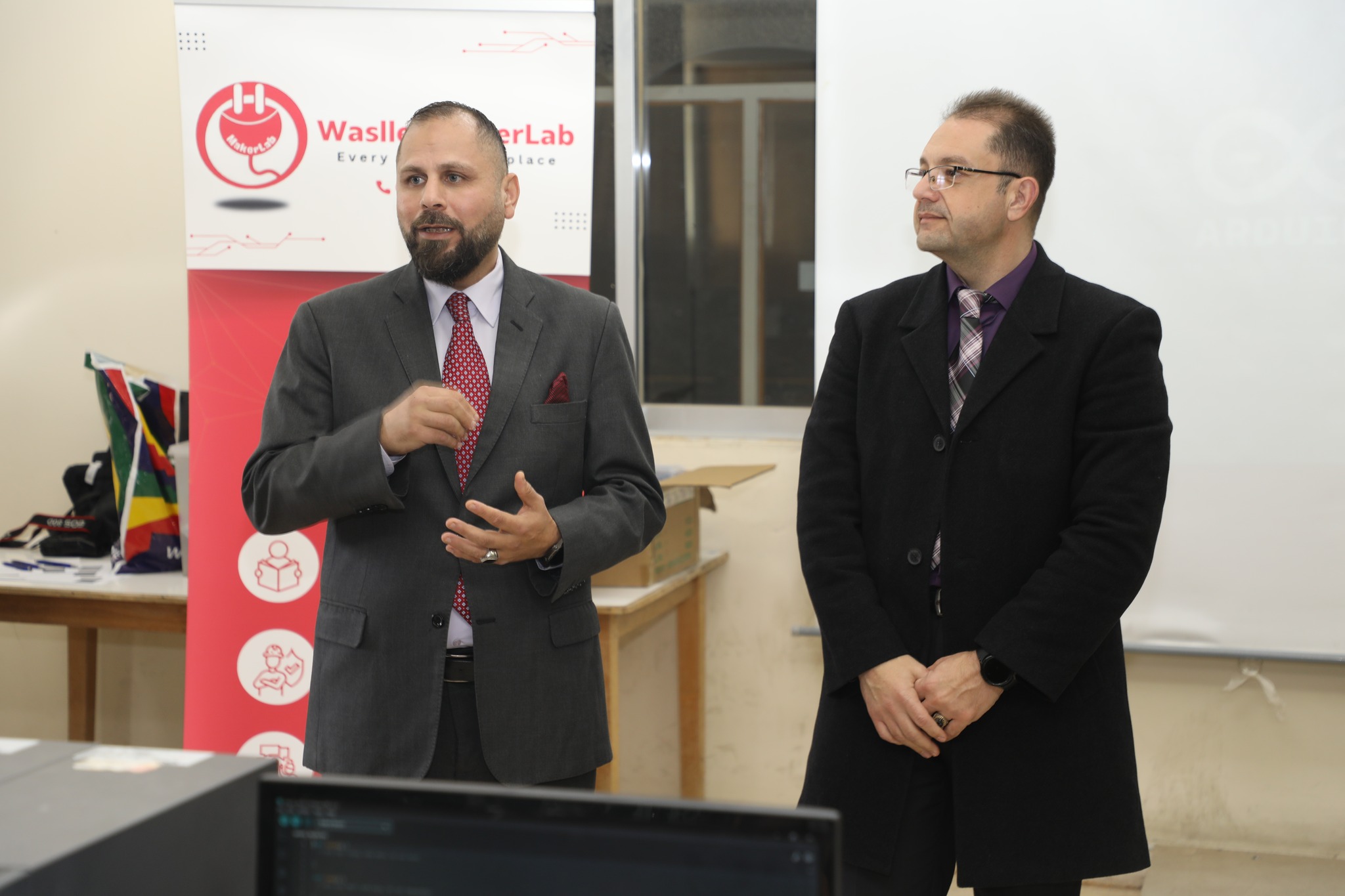ARDUINO Workshop in the field of robotics

The Prince Hussein Bin Abdullah Faculty of Information Technology at Al al-Bayt University organized a workshop in collaboration with Al-Ruad Academy for Training and Consulting, Kufa for Educational Technology Consulting, and Wasla Company in the computer labs of the Muslim Building at Al al-Bayt University.
The workshop was opened by the Dean of the Prince Hussein Bin Abdullah Faculty of Information Technology, Professor Dr. Mohammad Eissa Al-Jaradat, who welcomed the students and the organizing companies, emphasizing the faculty's commitment to holding such free courses for students, which are usually conducted at high costs in external venues. He affirmed the university president Professor Dr. Osama Nusair's commitment, through the faculty, to develop students' skills in various specializations and to encourage their participation in various local and international programming competitions. He clarified the faculty's insistence on organizing many curricular and extracurricular activities for students by inviting the private sector to contribute to such activities to enhance the diverse capabilities and personalities of the students.
The Public Relations Director of Al-Ruad Academy, Mr. Ayman Al-Laham, stated that the academy has been collaborating with Al al-Bayt University for nearly ten years, aiming to provide practical benefit to students, confirmed by a certified certificate, emphasizing the provision of a free course to support students.
Certified trainer Engineer Abdul-Haq Yaqoub provided a general introduction about robots, their invention, how to benefit from them, their functions, and how to program them. He then gave a detailed explanation of how to handle robot programming using Arduino software, which is used in most electronic projects, ranging from robots to all interactive projects. He explained that Arduino is connected to sensors to interact with the physical world, converting these sensor readings into data that it analyzes based on the "codes" programmed into it, after which it can make decisions such as operating motors or activating lights or sound sources.
A large number of students from the faculty attended the workshop, along with the lab supervisors in the Imam Muslim Building.